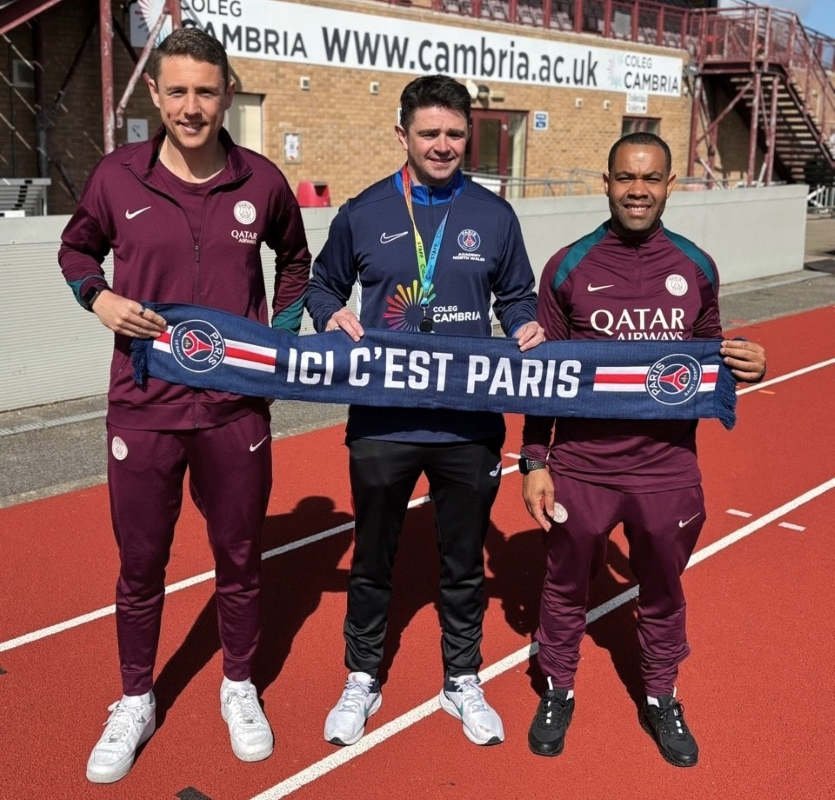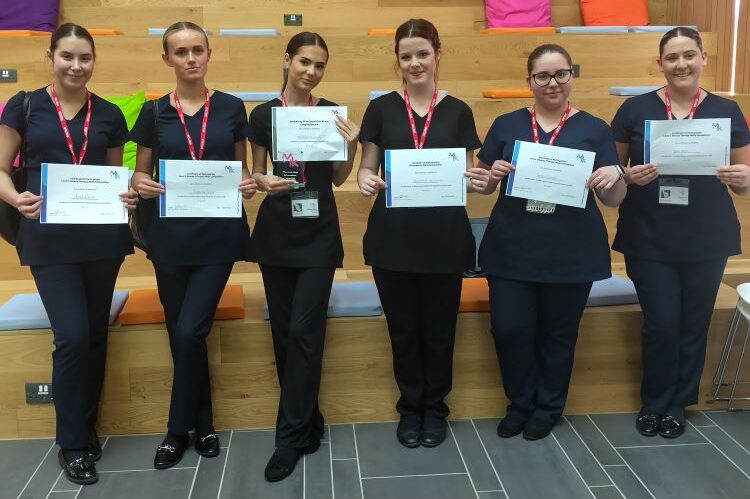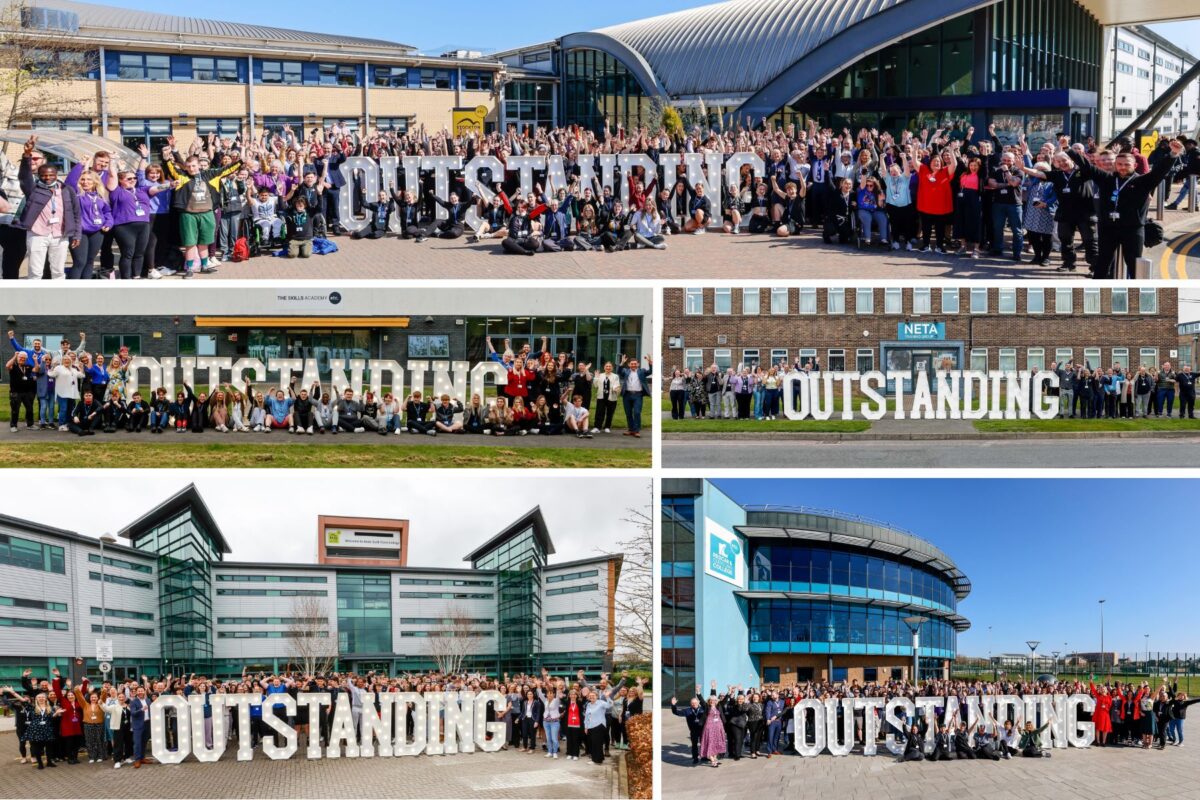Gatsby’s Benchmarks: The Next Decade of Career Guidance

Beth explains what colleges and ITPs need to know about the updates to the Gatsby Benchmarks for Good Career Guidance and the evidence that has informed the evolution of the framework, as set out in Gatsby’s new Good Career Guidance: The Next Ten Years report.
On 18 November we celebrated an exciting milestone in the journey to bring world-class careers guidance to even more young people up and down the country – the launch of Good Career Guidance: The Next Ten Years and the updated Gatsby Benchmarks.
This new report is a testament to the hard work, dedication and collaboration of colleges, training providers, schools and the wider careers guidance community. Their contributions have been essential in shaping the updates to the benchmarks and ensuring those changes are grounded in the reality of students’ needs and the demands of today’s world.
Thank you to everyone involved from the world of FE, including the Association of Colleges and the Association of Employment and Learning Providers, which joined our advisory group, and colleges and training providers, like Education Partnership North East, Wigan & Leigh College, Newcastle College and Learning Curve Group, that generously lent their perspectives to our expert practitioner group.
Reflecting on a decade of progress
The original benchmarks were introduced a decade ago, providing a clear and robust framework, backed by international evidence, to help colleges and secondary schools provide world-class careers guidance to young people. Careers guidance has come a very long way since then. We’ve seen a huge amount of innovation, energy and dedication from colleges, with fantastic progress being made.
The eight Gatsby Benchmarks
| 1. A stable careers programme | 2. Learning from careers and labour market information | 3. Addressing the needs of each young person | 4. Linking curriculum learning to careers |
| 5. Encounters with employers and employees | 6. Experiences of workplaces | 7. Encounters with further and higher education | 8. Personal guidance |
It’s been a privilege to witness the resulting transformation and there is a huge amount to be proud of:
- Mass adoption – more than 90% of colleges and schools measure and plan their careers provision using the Gatsby Benchmarks
- Widespread implementation – the average number of benchmarks being achieved has more than tripled since 2018
- Tangible outcomes – young people in institutions that meet more of the benchmarks are significantly less likely to be Not in Employment, Education or Training (NEET) at age 16 and 18
It is crucial that all young people, whatever their background, receive good careers guidance. It enables them to maximise their talents, realise their ambitions and, ultimately, secure a rewarding career. Young people without strong social or family links to different careers benefit most; good careers guidance drives social mobility and contributes to social justice.
Responding to a changing world
The last decade has also been a time of significant change. As well as incredible innovation in colleges and schools, there have been extensive education reforms, labour market shifts and considerable technological change.
In 2023 we set out to ensure the Gatsby Benchmarks would remain fit for the future: helping even more young people to make ambitious and fulfilling choices in the decade to come.
After almost two years of engagement, research and analysis, including an open consultation, numerous roundtables with FE stakeholders and a programme of visits to colleges, ITPs and schools across the country, we have updated the benchmark framework where the evidence demonstrated opportunities to strengthen it.
Updates rooted in evidence
While the core of the Gatsby Benchmarks remains the same – and all eight benchmarks have been retained – the changes we have made are really important.
We’ve set out these changes through five themes:
Careers at the heart of education and leadership
Careers guidance is both a whole-staff and a whole-institution endeavour. The distinct responsibilities of leaders and governors are now referenced alongside the roles of the college or ITP’s careers leaders and careers advisers. We have emphasised the importance of a careers programme which is linked to the institution’s vision and strategy, with all staff being supported to understand their role, for example through college and ITP staff development programmes. This is particularly important as all teaching staff now need to highlight and link progression routes, skills and knowledge in their curriculum area to a range of careers.
We have also emphasised the importance of careers leaders and careers advisers working closely together and have highlighted the value of careers adviser feedback, including that this should be used in the provider’s regular evaluations.
Inclusion and impact for each and every young person
Woven through multiple benchmarks are updates that emphasise the importance of tailoring provision to young people’s individual needs. We pay particular attention to inclusion and support for vulnerable or disadvantaged young people or those with special educational needs and disabilities (SEND). FE colleges excel at personalising learning provision to individual needs – an approach that can be replicated for careers guidance, with the young person’s careers journey sequenced in a way that meets their needs as they progress through the college.
One example of best practice we saw was at Connell Co-op College where individual needs and career aspirations are included in the application process for the college. When a young person joins, they record their vision and where they would like to progress to next, which makes destinations a priority from the outset. Their aspirations and intentions are reviewed throughout their time at college, including during meetings with the careers adviser. Young people are given opportunities to reflect on their vision as they move through the careers programme. Every student’s vision is shared with their subject teachers, their progression tutor, the careers adviser and a destinations manager.
Meaningful and varied encounters and experiences
Multiple, meaningful encounters and experiences with employers and different education providers will ensure young people get valuable exposure to the next steps they could take. Partnerships with employers are crucial to the implementation of the benchmarks and this is one of the many areas where colleges and ITPs have made tremendous progress.
An example we saw as part of our review was at Sunderland College. The college offers encounters to local schools that are tailored to their individual requirements. The encounters complement the information, advice and guidance that pupils have already been given. Activities offered as part of an encounter include: talks to classes or assemblies delivered by college curriculum staff, pastoral staff and current students, participation in careers fairs for all year groups, application clinics and mock interviews, college campus visits for all year groups and discovery days and subject-specific visits for different age groups to explore what studying at the college is like.
We have drawn on examples of great practice like these to expand the definitions of ‘meaningful’ in Benchmarks 5 and 7, and added one to Benchmark 6. We have also emphasised that variety is important (e.g. with different settings for further and higher education, or different sizes of employer), as is giving young people time to prepare and reflect.
Focusing on the use of information and data
Careers information not only needs to be shared with young people but also used by them to inform their decisions. Data collection in colleges and ITPs should now include intended destinations, as this helps inform how to tailor support. Knowing young people’s sustained destinations remains vital for evaluation.
One example of innovative practice in this area is Weston College, where young people are encouraged to use LMI even before they join the college as a key stage in the applicant journey. As soon as they join the college, learners have ongoing access to an LMI platform throughout their studies so that they can explore sectors and job roles. Their exploration of LMI is recorded on the platform and informs their conversations with tutors, subject staff and careers advisers.
Engagement of parents and carers
Parents and carers are a huge influence on young people’s career decision-making and this continues to be the case for those learners who move from secondary schools to college settings. Parent and carer engagement has been strengthened, including highlighting the need for careers programmes to set out both how parents and carers will be engaged and how they will be helped to access and use labour market information, to ensure they can play their part confidently in supporting young people.
Good career guidance in settings beyond college and school
Recognising that many independent training providers have also begun using the framework to shape their provision, we have drawn on their experiences to ensure that the updated benchmarks are also applicable to those working with young people in ITPs. All young people, whatever their learning location or situation, deserve world-class careers guidance and we hope the Government can consider how best to ensure that more young people studying in ITPs and those following an apprenticeship can benefit from careers guidance based on the benchmarks.
Government support
In our open consultation the need for stability was overwhelmingly emphasised by practitioners. We’re pleased, therefore, that the Government has confirmed that the framework will continue to be part of their guidance for colleges and schools, as it has been since 2018. At the launch, Minister for Skills, Jacqui Smith, announced the Government’s commitment to the Gatsby Benchmarks as the bedrock of its strategy to provide high-quality careers guidance to all young people. Updated guidance will be published in the Spring for implementation from September 2025.
Making change happen
The updated framework, rationale for changes and examples of impressive practice are available in the Good Career Guidance: The Next Ten Years report on the Gatsby Benchmarks website. As the champions for good career guidance, we are encouraging everyone working in FE colleges to read the report, share with their networks and think strategically about what the next steps could be for their college or ITP. Here’s to the next ten years!
By Beth Jones, Head of Career Programmes for the Gatsby Foundation
Beth has led Gatsby’s work on the careers system in England for the last 10 years, building a transformative programme that delivers significant impact. Beth has advised on national careers policy in several countries including Spain and Hong Kong; has held several positions on advisory boards across the sector; and been a governor for a group of London schools.










